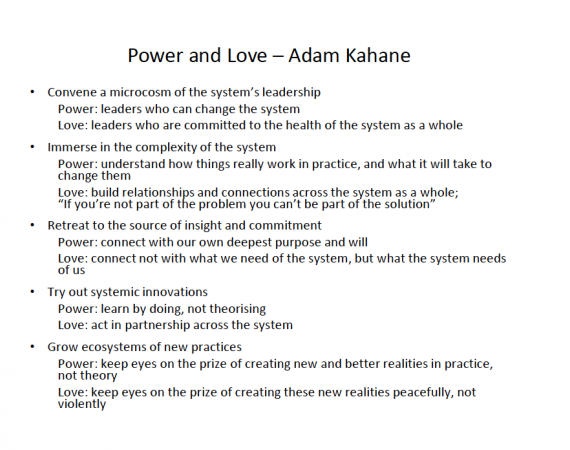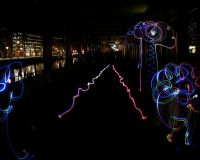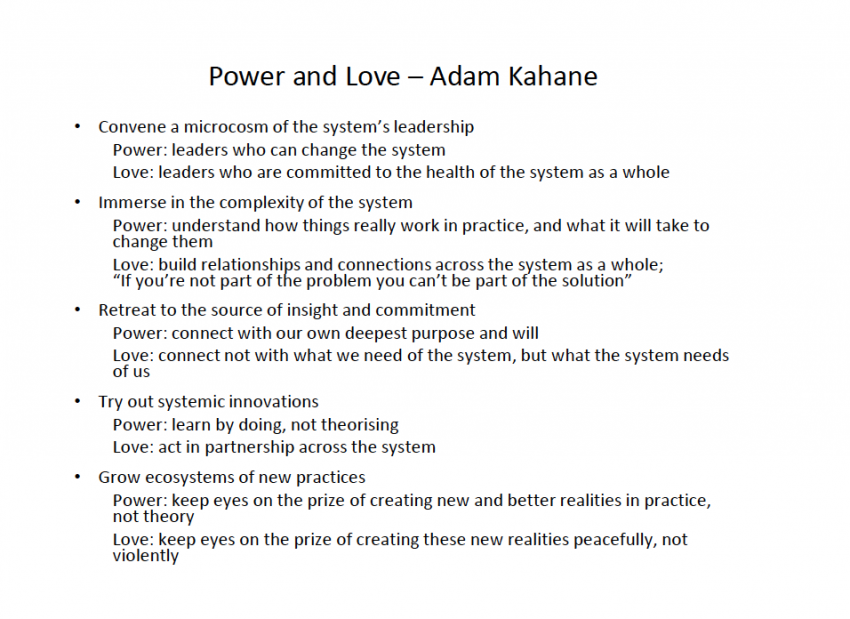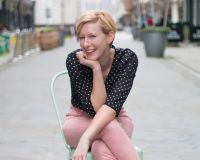Posted on Thu 4 Mar 2021
Notes from conversations
Equitable Futures so far has mostly been about conversation. Conversation that is rich, reflective, often funny and sometimes painful.

Posted by
Project

Towards Equitable Futures (2020)
We live in capitalism, its power can often seem inescapable - but then, so did the divine right of kings. Any human power can be resisted and changed by human beings. Resistance and change often begin in art. Ursula K. Le Guin, National Book Foundation Medal speech 2014 Towards Equitable…Watershed, and the Pervasive Media Studio, think a lot about the future. We are a place that supports research, invention and innovation at the intersection of art, technology and society.
Equitable Futures is designing and testing a new method for thinking about the future in a more inclusive way than has previously been the case. We are adapting the Three Horizons model developed by Bill Sharpe and drawing on the expertise of Zahra Ash-Harper to integrate a deep understanding of structures of power and how they operate at both a systemic and interpersonal level, so that we might do our work more fully. It is a six-month experimental process of workshops, at the end of which we hope we will have a set of tools that will help us to co-author the space that Watershed occupies.
So far the project has mostly been about conversation. Conversation that is rich, reflective, often funny and sometimes painful. I wanted to share some notes and insights from these conversations, and how we have begun to find some methods for responding to them as they emerge.....
It is important to interrogate our standard documents and processes in this project as we seek to reset the dynamics of collaborative work. Zahra, Bill and I discussed the terms of the contract between them as freelancers and Watershed. We agreed, for example, to use a Creative Commons Share Alike license to govern our intellectual property https://creativecommons.org/licenses/by-sa/4.0/legalcode, this means that each of us are free to Share and Adapt the outcomes for our own use as long as we credit each other and distribute under the same terms. We also agreed to add a clause that committed us to a further conversation in which we would explore our principles of collaboration in more depth:
In additional to the clauses set out below Jo Lansdowne, Zahra Ash-Harper and Bill Sharpe agree to co-design a framework for working together that recognises and respects each other’s stories as belonging to them, makes visible and responds to what each other needs in order to work well and establishes a duty of care for each other and for our collaborators as we bring them into the work.
We developed this through a discussion about how each of us are most able to bring our whole selves to the work. We used a structure that drew on Alice Holland’s Self Care Manual https://www.watershed.co.uk/cpi/toolkit/write-your-own-self-care-manual/ to explore our needs in terms of care, working environment, communication, bodies and conflict. This allowed us to explore issues such as how we each embody structural dynamics, timescales of change, confidence in expressing ideas and keeping well online. We also began our work together by sharing influences, ideas and reference texts (notably Bill Sharpe’s Three Horizons: The Patterning of Hope, Audrey Lorde’s The Master’s Tools Will Never Dismantle The Master’s House and Naomi Klein’s On Fire: The Burning Case for a Green New Deal) as a starting point to better understand each others' motivations.
There is an urgent need for love in our public and professional spaces. Love is a very important starting point for our work in this project and drawing on thinking from Adam Kahane (below) we had a long conversation about what that means, particularly in relation to power. We positioned ideas on a spectrum between trust and fear, listening to each other carefully as we considered the relationship between love and our individual and collective identities.

Thinking more equitably about the future means convening a group of people that reflects the system that you are trying to change, both those with existing power (of various forms) and those who have experienced significant exclusion.
We have done this by bringing together a group from the Watershed leadership team and those in the Studio community and Rife who have historically been underrepresented in our community and therefore less part of its design and decision making.
Our conversations here have highlighted the complexities of trying to take an intersectional approach within a context of multiple forms of discrimination and different histories of inclusion work to date. They also raise questions around the extent to which it is possible to look to the future while trying to repair historical damage (explored further below).
Participants must be able to put their personal experiences to work for the collective conversation. This means that they must be able to make a truly informed decision about whether to participate, they must be supported to recognise and manage their own responses to moments of vulnerability, and while they may feel uncomfortable - they must feel safe.
We have aimed to achieve this by extending invitations to those who have faced exclusion and have already chosen to speak about that within their professional practice. We then gave everyone an opportunity to meet the design team, hear about our approach and ask questions before choosing whether to join the project. At that point we asked everyone to think about and tell us what they would contribute to the group in order to demonstrate active and mutual consent.
Adibah Iqbal and I ran a short group workshop for Watershed staff exploring defensiveness; acknowledging that it would be likely to come up in the work, discussing how it feels and sharing methods for dealing with it so that we care for ourselves and not do harm to others. With the wider group we focussed on building trust between participants, offering a game structure designed by Zahra to practice both how we share our experiences and how we bear witness to others. Grace Quantock led a session to help us understand how we might work in a trauma informed way, recognising when conversations are triggering emotional responses in ourselves or others that might relate to past experiences and sharing techniques for dealing with the physical experience of that. It is our hope that by doing this foundational work we might in fact enable more difficult conversations between people with different experiences of life than would otherwise be possible.
We have made mistakes, and experienced times in the process so far when people have not felt safe and which have resulted in moments of hurt and conflict. We have held repair conversations which gave people an opportunity to share their experience and be listened to without question, but learning how to best support that is an ongoing part of the work - something we will reflect more on as we understand it better.
We are committed to sharing both our collective visions of the future and the tools that get us there so you will hear more from me - alongside Zahra, Bill, Grace and Adibah - in the coming months as the project develops. And a final thought... if this all sounds very serious, it sort of is, but we are also laughing a lot (more thoughts on that to come too).
